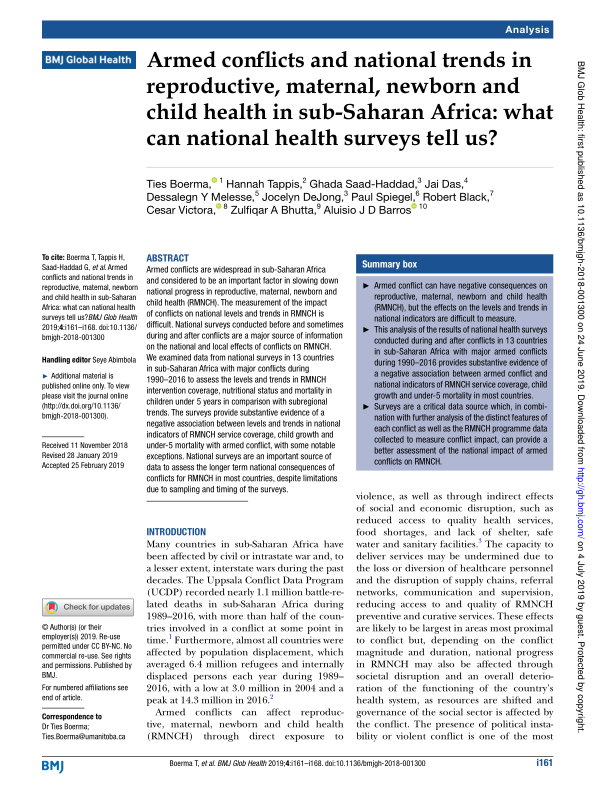Abstract
Armed conflicts are widespread in sub-Saharan Africa and considered to be an important factor in slowing down national progress in reproductive, maternal, newborn and child health (RMNCH). The measurement of the impact of conflicts on national levels and trends in RMNCH is difficult. National surveys conducted before and sometimes during and after conflicts are a major source of information on the national and local effects of conflicts on RMNCH. We examined data from national surveys in 13 countries in sub-Saharan Africa with major conflicts during 1990–2016 to assess the levels and trends in RMNCH intervention coverage, nutritional status and mortality in children under 5 years in comparison with subregional trends. The surveys provide substantive evidence of a negative association between levels and trends in national indicators of RMNCH service coverage, child growth and under-5 mortality with armed conflict, with some notable exceptions. National surveys are an important source of data to assess the longer term national consequences of conflicts for RMNCH in most countries, despite limitations due to sampling and timing of the surveys.
Summary box
-
Armed conflict can have negative consequences on reproductive, maternal, newborn and child health (RMNCH), but the effects on the levels and trends in national indicators are difficult to measure.
-
This analysis of the results of national health surveys conducted during and after conflicts in 13 countries in sub-Saharan Africa with major armed conflicts during 1990–2016 provides substantive evidence of a negative association between armed conflict and national indicators of RMNCH service coverage, child growth and under-5 mortality in most countries.
-
Surveys are a critical data source which, in combination with further analysis of the distinct features of each conflict as well as the RMNCH programme data collected to measure conflict impact, can provide a better assessment of the national impact of armed conflicts on RMNCH.

















Dean: How to Fix America’s Supply Chains Before They Break Again